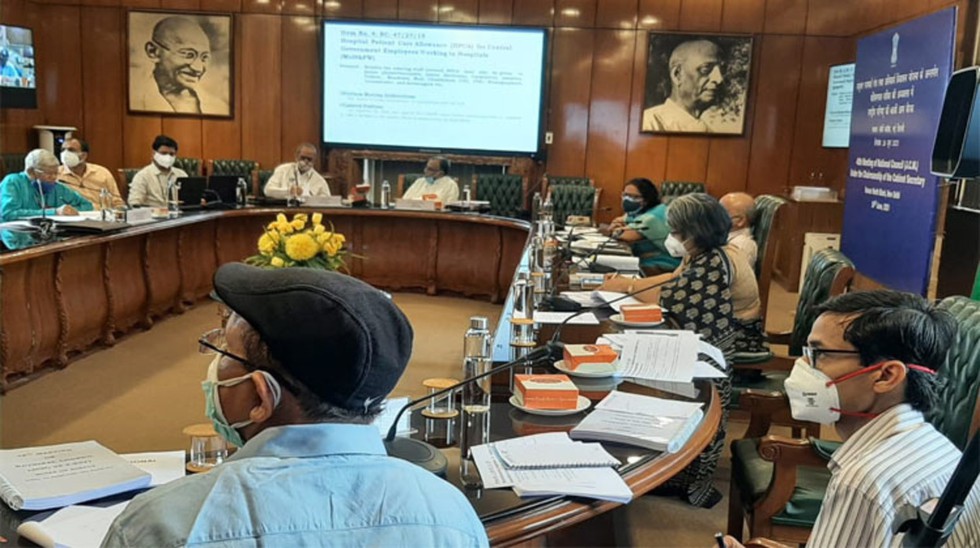About Joint Consultative Machinery (JCM):
- It is a platform for constructive dialogue between the representatives of the staff side and the official side for peaceful resolution of all disputes between the Government as employer and the employees.
- The scheme was introduced in 1966 with the objectives of promoting harmonious relations and securing the greatest measure of cooperation between the Central Government as the employer and the employees.
- The scheme is a non-statutory one mutually agreed upon between the staff side and the official side.
- The scheme covers all regular civil employees of the Central Government, except:
- The Class-I services;
- The Class-II services, other than the Central Secretariat Services and the other comparable services in the headquarters organization of the Government;
- Persons in industrial establishments employed mainly in managerial or administrative capacity, and those who are being employed in supervisory capacity drawing salary going beyond grade pay of Rs.4200/- per month;
- Employees of the Union Territories;
- Police personnel.
- Joint Councils:
- The scheme provides for the setting up of joint councils at the National, Departmental and Regional / Office levels.
- The National Council, chaired by the Cabinet Secretary, is the apex body.
- The scope of the Joint Councils includes all matters relating to conditions of service and work, welfare of employees, and improvement of efficiency and standards of work, provided, however, that
- in regard to matters of recruitment, promotion, and discipline, consultation is limited to matters of general principles only, and
- individual cases are not considered.
- The National Council deals only with matters affecting Central Government employees generally, such as pay of common categories of staff, allowances, etc.,
- The Departmental Council deals with matters affecting only the employees in the Ministries/Departments concerned.
- The Office/Regional Councils deal with regional or local issues only.
